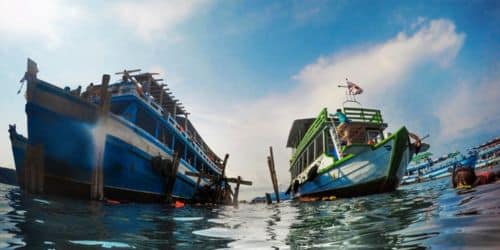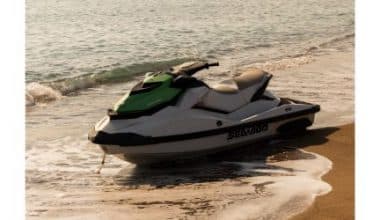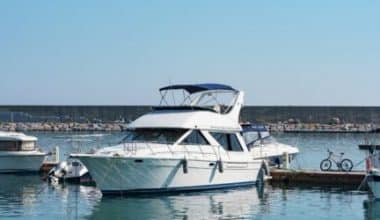Marine insurance is a type of insurance that covers the loss or damage of ships, cargo, and terminals during shipping. It is an essential tool for businesses and individuals who rely on maritime transportation to move their goods.
Marine insurance policies can be customized to meet the specific needs of the insured. For example, a policy can cover the loss of a ship due to sinking, fire, or collision. It can also cover the loss or damage of cargo due to weather events, theft, or pilferage.
Marine insurance is a complex topic, but it is important to understand the basics of how it works before purchasing a policy. This article will provide a comprehensive overview of marine insurance, including the different types of coverage available.
What is Marine Insurance?
Marine insurance covers the loss or damage of items on terminals, cargo, and ships on the water or on land while in transit. This includes sinking, theft, collisions, fires, and other natural disasters.
Types of Marine Insurance
#1. Liability Insurance
Liability insurance covers ships in the case of a crash, attack, or collision resulting in significant damage or loss. The policyholder is reimbursed for uncontrollable liability.
#2. Marine Cargo Insurance
It covers cargo loss or damage sustained during transit. This coverage also covers damages caused by unloading delays or ship accidents. Because it protects the entire ship, this insurance is more effective for heavier cargo shipments, such as tankers.
#3. Marine Hulls Insurance
This type covers the vessel as well as the furniture and objects on the haul. Shipowners shouldn’t ignore this policy.
#4. Heavy Machinery Insurance
In the event of operational damage, all important machinery on the ship is covered, and the surveyor will conduct an analysis before granting compensation.
#5. Transportation Insurance
A freight insurance policy is one that a third-party company arranges to ensure partial or complete coverage for your shipment. It is a policy that applies exclusively to the shipper and the specific freight shipment and will only be responsible for third-party claims.
#6. Inland Marine Insurance
This is not the same thing as marine insurance. While marine insurance covers things transported by sea, inland insurance covers products and items, as well as other objects moved on land, such as materials transported by truck.
The Basics of Marine Insurance
The marine business is one of the most dangerous, so insurance is carefully considered. When you get insurance, you transfer all liability to the insurance company. This means you will be functioning as a limited-liability intermediary. Obtaining an insurance policy as an exporter implies that you will be protected in the event of cargo loss or damage.
One of the first responsibilities you must do as an exporter is to get marine cover; this protects the interests of your clients. If a loss occurs, you must notify your underwriter, who will assign a surveyor to investigate the damage. It is mandatory to provide agreed-value coverage in marine insurance. Except in the case of alleged fraud, this agreed value is reached between the insurer and the policyholder.
Principles of Marine Insurance
The principles of marine insurance are key standards and concepts that control how marine insurance policies operate and are applied. These concepts contribute to the development of a fair and successful maritime insurance system. The following are the fundamental principles of marine insurance:
#1. Complete Transparency
To establish a legitimate contract, both the policyholder and the insurer must be entirely honest, disclosing all relevant and exact information about the insured risk.
#2. Insurable Interest
The insured must have a legally recognized financial stake in the insured goods or property. The insurance contract is deemed null and void if there is no insurable interest.
#3. Indemnity
The fundamental goal of marine insurance is to compensate the insured financially (indemnity) in the case of a covered loss or damage. The insurance payout is intended to return the insured to the same financial position as before the loss happened, with no profit being made from the claim.
#4. The Proximate Cause
If numerous factors contribute to a loss or damage, the proximate cause, also known as the most important or direct cause, determines whether the insurance policy will pay for the claim.
#5. Subrogation
After compensating the insured, the insurer may assume the insured’s legal rights to sue those parties liable for the loss. This approach permits the insurer to recoup the amount of the paid claim.
#6. Contribution
When various insurance policies cover a risk, the concept of contribution comes into play. Taking into account the limitations and terms of their various policies, each insurer divides the cost of the claim equitably.
Benefits of Marine Insurance
Marine freight insurance coverage may include the following features:
- Customer-Focused Policies: Insurance companies provide marine insurance policies that are tailored to the individual needs and requirements of customers who transport goods by sea or river.
- Options for Insured Value: Customers can select the insured value of their items, which can be the real value or an agreed-upon figure.
- Flexible Premiums: Insurance companies may offer premium payment plans that are flexible, such as annual, quarterly, or single payments. This varies depending on the plan.
Types of Marine Insurance Policies
- Floating Policy
- Travel Policy
- Time Policy
- Mixed Policy
- Named Policy
- Port Risk Policy
- Fleet Policy
- Single-Vessel Policy
- Blanket Policy
#1. Floating Policy
Large exporters may choose an open policy, also known as a blanket policy, instead of purchasing insurance separately for each shipment when floating in marine insurance coverage. An open policy is a one-time insurance policy that covers all shipments made within the agreed-upon period, which is usually a year. The exporter may be required to disclose the details of all shipments made during the time, such as the type of goods, modes of transport, destinations, and so on, on a regular basis (say, once a month).
#2. Travel policy
A separate policy may be able to cover a single lot or consignment. Every time a shipment is transported outside, the exporter must acquire insurance coverage. The disadvantage is that each time an exporter sends a consignment, extra effort and time are required. Open policies, on the other hand, automatically insure shipments.
#3. Time Policy
Time coverage in marine insurance is typically given for a year. One can issue for more than a year or to accomplish a specific journey. However, it is usually for a limited time. In India, time policies can only be granted once a year under marine insurance.
#4. Mixed Policy
A mixed policy is a combination of two policies, namely the voyage policy and the time policy.
#5. Named policy
The named policy is one of the most common marine insurance products. The name of the ship appears in the insurance document, which states that the policy provided is in the name of the ship.
#6. Port Risk Policy
It is a policy implemented to safeguard the safety of the ship when it is docked.
#7. Fleet Policy
A single policy covers several ships owned by the company or owner. It has the advantage of covering even older ships. Furthermore, the policy is time-bound
#8. Single Vessel Policy
A single vessel policy covers only one vessel under a marine insurance policy.
#9. Broad policy
The owner of this policy must pay the maximum protection amount when purchasing the coverage.
What Does a Marine Insurance Policy Cover?
The following are the Marine Insurance policy’s inclusions and exclusions:
- Theft or pilferage: A marine insurance policy covers the loss or damage to goods or cargo caused by theft.
- Total Loss of Any Package During Loading or Unloading: Marine cargo insurance covers the loss or damage to goods or cargo during loading and unloading.
- Malicious Damage: Marine insurance covers the loss or damage to goods or cargo caused by anyone other than the policyholder or its employees’ purposeful actions.
- Collision of Goods Carrying Vessels: Marine cargo insurance covers the loss or damage caused by a collision between two vessels.
- Fire, Lightning, and Explosion: Marine insurance offers critical coverage for disasters such as fire, explosions, and lightning while transporting cargo.
- Land Conveyance Collision, Overturning, or Derailment: Marine cargo insurance also covers expenditures incurred as a result of crashes, overturning, or derailment of land transportation vehicles transporting the cargo. Compensation is made available to reimburse the costs and damages incurred as a result of these accidents.
- Bridge Breakage: The policy covers the loss or damage to the goods or cargo if the bridge through which the vehicle is traveling breaks during transportation.
- Overturning of Goods Transporting Vehicle: Marine cargo insurance covers the loss or damage to goods/cargo caused by the overturning or derailment of the vessel transporting the goods.
- Stranding, Grounding, or Sinking: Marine cargo insurance covers the loss or damage to products caused by the ship’s stranding, grounding, or sinking. *Stranding and grounding merely refer to a point during transportation where the vessel becomes trapped somewhere in between.
- Earthquake or Volcanic Eruption: The policy covers the loss or damage to goods or cargo caused by an earthquake or volcanic eruption while they are being transported.
Read Also: HOW MUCH IS BOAT INSURANCE: 2023 Price Guide
- Water Entering the Vessel During Transportation: A marine insurance policy covers loss or damage caused by sea/river/lake water entering the watercraft during transportation. It does not, however, cover damage caused by precipitation.
- General Average Sacrifice Salvage Expenses: General average sacrifice salvage expenses are covered by marine insurance policies. A general average situation is one in which, during a maritime emergency, sacrifices are made to defend the vessel, cargo, and crew’s shared interests. The coverage compensates for the costs associated with these sacrifices and salvage activities.
- Natural Calamities: To safeguard cargo against the effects of natural calamities, marine insurance provides coverage for disasters like as earthquakes and lightning strikes. This coverage ensures that any losses incurred as a result of these unanticipated situations are covered.
- Jettison: The policy also covers jettison, which occurs when cargo is purposefully thrown overboard to avoid additional damage to the vessel or other products.
- Washing Overboard: Marine cargo insurance covers the loss or damage to products caused by waves sweeping them away during shipment.
- Delivery of Goods or Cargo at Different Locations: The insurance covers goods/cargo damaged by any of the covered dangers when being unloaded at the next nearest location/port other than the designated location/port owing to inclement weather. The insurer, however, must be notified.
- Contact of Goods Carrying Vehicle with Structure/Animal: The policy covers the loss or damage to goods caused by the vessel colliding with any structure, animal, or other object.
What Marine Insurance Does Not Cover?
- Unsuitable & Inadequate Packaging: The marine policy does not cover the loss or damage to products caused by improper packaging.
- Unfit Container: The policy does not cover the loss or damage to the goods if the carrying container is deemed unsafe to transport the products.
- Willful Misconduct: The marine cargo insurance policy does not cover loss or damage to goods caused by the policyholder’s willful actions.
- Mishandling of Goods in Transit: The insurance policy does not cover the loss or damage to goods caused by mishandling of goods while in transit.
- Inherent Vice Damage: This coverage refers to the point at which any goods/objects/materials self-destruct owing to internal features. The marine insurance policy does not cover this.
- War danger: The policy does not cover loss or damage incurred during a war or as a result of the danger of a war.
- Over-Dimensional Cargo: The loss or damage caused to products/cargo as a result of the goods being larger than their specified carrying capacity.
- Bulk Cargo: The loss or damage of something in liquid or dry form that is being shipped without packaging is referred to as bulk cargo. Marine insurance coverage will not cover this.
- Temperature Sensitive: The marine insurance plan does not cover the loss or damage of temperature-sensitive goods.
- Weapon, Radioactive, or Nuclear Fission: The insurance policy does not cover the loss or damage of goods/cargo caused by radioactivity or nuclear fission while in transit.
- Ordinary Wear and Tear: The insurance policy does not cover loss or damage caused by normal wear and tear of the products.
- Delay: A marine insurance policy does not cover the loss or damage of goods/cargo as a result of a delay.
Which Clauses Cover Marine Insurance?
The Maritime insurance coverage given by marine insurance can be understood by looking at the risks addressed by insurance policies that are loaded with various marine insurance clauses:
- The Institute Cargo Clause C provides minimal coverage with a limited selection of risk covers. It covers the shipment against incidents such as fire, and cargo release in the event of distress, explosion, sinking, capsizing, derailment, collision, and so on.
- The Institute Cargo clause B adds an extra layer of security. It not only includes all of the risk covers mentioned in Clause C, but it also protects the cargo from events such as earthquakes, volcanic eruptions, and damage caused by rainwater, ocean, river water, and so on, as well as loss of package overboard or during loading and unloading.
- The Institute Cargo Clause A provides the most comprehensive coverage, as it covers all risks of loss or damage to the products. Aside from the risks covered by Clauses B and C, it also covers losses caused by breaking, chipping, denting, bruising, theft, non-delivery, all water damage, and other similar incidents.
Warfare, strikes, riots, and civil unrest are not protected by the institutional cargo clauses. The insurer, on the other hand, may provide this coverage in exchange for additional marine insurance payments.
In terms of marine insurance coverage, there are three types of marine insurance clauses: Institute Cargo Clauses A, B, and C. Clause A gives the most comprehensive coverage, while Clause C provides the most basic risk coverage.
What are the Benefits of Marine Insurance
- Marine insurance assists in managing the risks associated with the business.
- It reduces the possibility of cargo theft.
- In the event of a mishap, it gives financial stability to the firm.
- There are various alternatives available, and you can tailor your policy to your specific needs and budget.
- Globally, the majority of providers provide claim survey support, as well as claim settlement assistance.
- It can aid in long-term savings. As a result, it provides you with the opportunity to build wealth for other future aspirations.
What Is the Difference Between Fire Insurance and Marine Insurance?
Fire insurance covers the danger of a fire. Any tangible object or property is the topic matter. Moral responsibility is a key prerequisite in this case. In terms of fire insurance, no profit margin is expected. The insurable interest must be present both before and during the policy’s term.
The Functions of Marine Insurance, on the other hand, cover hazards related to the sea. The topic is the ship, freight, or cargo. It has no provisions concerning the cargo owner’s or the ship’s moral obligation. In terms of marine insurance, a profit margin of 10 to 15% is predicted. In marine insurance, the insurable interest must also be present only at the time of loss.
Conclusion
Marine insurance is an essential part of the maritime industry, and it can be a valuable asset for businesses and individuals who rely on the sea. If you are involved in the maritime industry, or if you simply need to transport goods by sea, then marine insurance is a must-have.
Additional Tips:
- When choosing a marine insurance policy, be sure to compare policies from different companies to find the best coverage for your needs.
- Be sure to read the policy carefully before signing it, so that you understand the terms and conditions of the coverage.
- Keep your policy information up to date, and notify your insurance company of any changes in your circumstances.
- File claims promptly if you experience a loss.
By following these tips, you can ensure that you are adequately protected by marine insurance.
- INLAND MARINE INSURANCE: Coverage & How to Get It
- Commercial Truck Insurance Georgia: All to Know
- 7+ BEST BOAT INSURANCE COMPANIES OF 2023
- Product Liability Insurance: Everything You Need to Know






